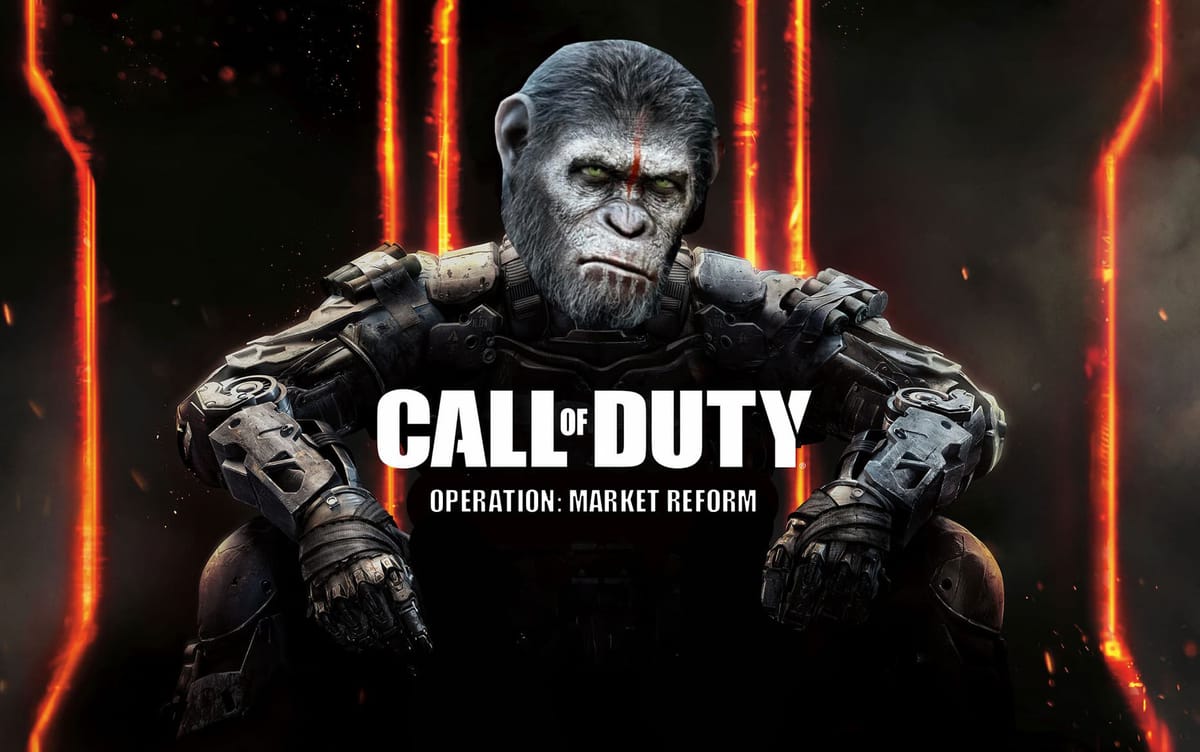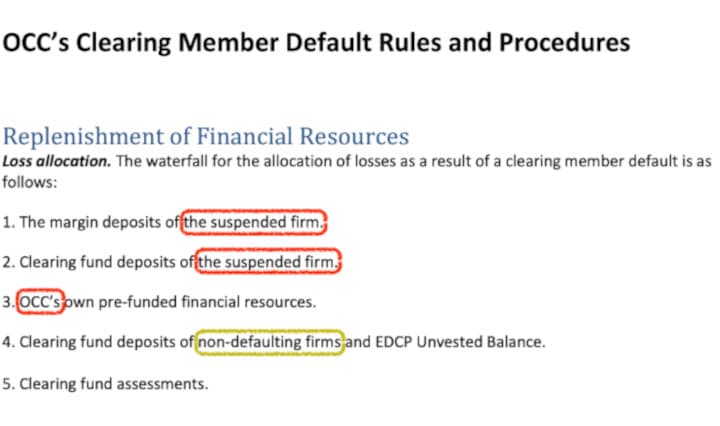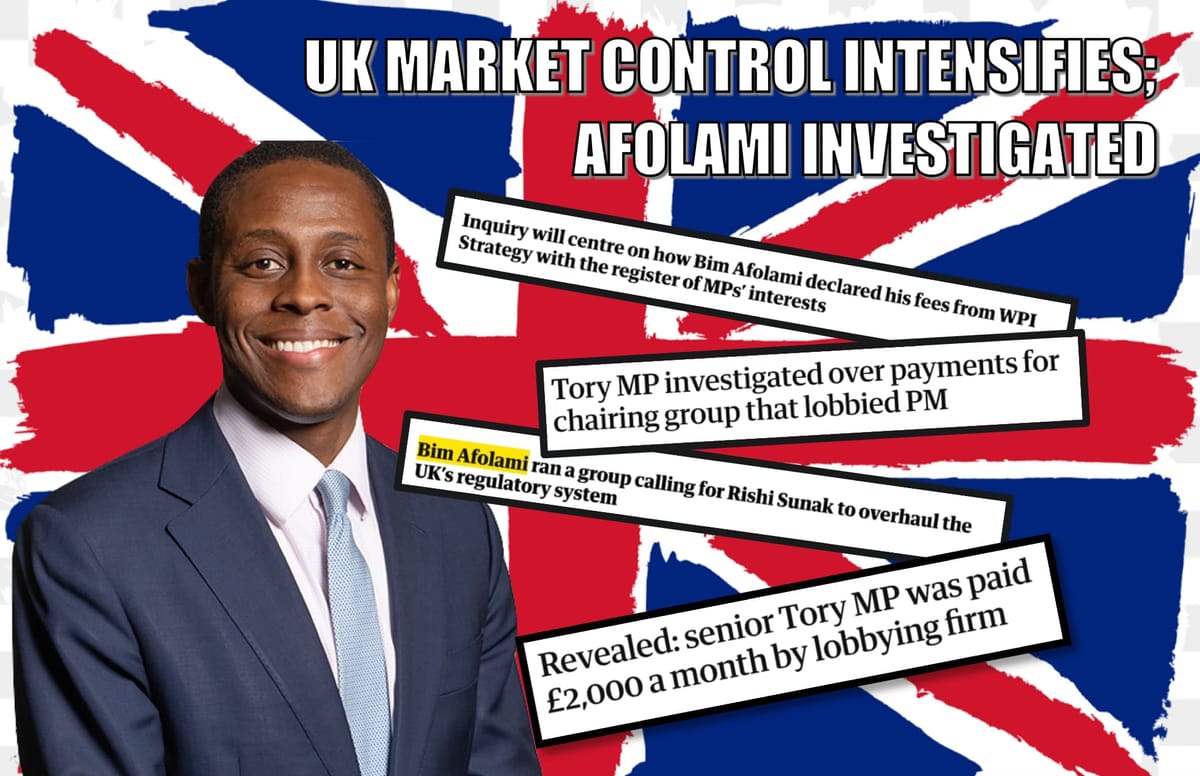FINRA 'Discipline' Alert! Instinet, Owned by Nomura (Lehman Bros' 2008 Purchaser), Caught Breaking Rules, Lacking Supervision, Misclassifying Orders, and Straight Up Misreporting Trades from 2015-2019. Same Time GameStop Boxed, Cohencidence?
Penalty? Censure, $165,000 fine without admitting wrong.

Source: https://www.finra.org/sites/default/files/fda_documents/2018057165801%20Instinet%2C%20LLC%20CRD%207897%20AWC%20va%20%282023-1673223595507%29.pdf
Good evening Superstonk, neighborhood jellyfish bact with you again!
I would like to share some more FINRA 'discipline' with y'all, this time it's Instinet.
Yes, that Instinet...
As these releases convey a ton of information I am going to try and follow the same recent approach, I hope this format makes sense.
- I am going to outline what Instinet did from points from the filing.
- I am going to pull the rules they broke and attempt to provide wut mean definitions
- I am going to try and break each section against Instinet down a bit further.
- I will talk about the penalty leveled.
- I will talk about how the no good, bad, nefarious behavior could impact GameStop.
- Lastly, as always, TLDRS.

Let's hit it!What Instinet did (without admitting or denying):
Between February 2015 and July 2019, Instinet, messed up.
- They published incorrect data in 54 monthly reports that they were supposed to get right according to a rule called Regulation NMS Rule 605.
- Because they didn't get these reports right, they broke Rule 605 and another rule called FINRA Rule 2010. These rules exist to make sure companies like Instinet play fair and don't mislead anyone.
On top of that, from February 2015 to May 2019, Instinet didn't have a good enough system in place to make sure they were following Rule 605.
- They didn't have the right checks and balances, which is supposed to be a big no-no in the financial world.The Rules Instinet broke:


Wut mean?:
In 2005, the Securities and Exchange Commission (SEC), which acts like the principal of the financial world's school, established a new set of rules called Regulation NMS.
- These rules were designed to modernize and strengthen the rules of the U.S. stock market, similar to setting up rules for trading baseball cards at school.
One of these rules, Regulation NMS Rule 605, is all about transparency.
- It requires "market centers" (which can be anything from the older kids who have lots of baseball cards to trade, to the younger ones who are just starting their collections) to share certain information about how they trade their cards (execute orders).
- This information has to be shared in a monthly report card, and it's meant to give everyone a clear picture of how well the market center is trading.
The report card has to include details about the types of trades they've made or canceled, broken down by the specific card, trade type, and trade size.
- It also has to classify trade types, like marketable limit orders and inside-the-quote limit orders.
If a market center doesn't follow Rule 605, they're also breaking the school's code of conduct, known as FINRA Rule 2010.
This rule is a bit like the golden rule of the school and is a real DICK move.
- It says that students (members) have to trade their cards fairly and with integrity.
FINRA Rule 3110(a) is like the school principal's rule that says every kid in school (in this case, every member of the financial world) needs to have a system in place to supervise their activities.
- This system needs to be good enough to make sure they're following all the rules of the school (securities laws and regulations) and the rules set by the principal (FINRA rules).Instinet published 54 inaccurate monthly reports of order executions:

Wut mean?:
From February 2015 to February 2019, Instinet ran a trading system called the Instinet Continuous Block Cross ATS (CBX), which is like a special club for trading baseball cards.
- During this time, they were supposed to report all the trades they made in this club according to Rule 605, just like they would have to report all their baseball card trades to the school principal.
However, they left out some trades made by certain groups and systems within their club from their reports.
- They mistakenly thought that all trades made by these groups were special and didn't need to be reported.
- Because of this, they underreported their total trades by about 5% during this period.
- In March 2019, after the school principal (FINRA) noticed this during a check-up, Instinet started evaluating each trade individually to see if it should be included in their report.
Additionally, from June 2017 to July 2019, due to mistakes in their report-making software, Instinet incorrectly classified some of their trades.
- They mislabeled trades that were supposed to be classified as inside-the-quote limit orders as marketable limit orders, kind of like mislabeling a rare baseball card as a common one?
- They fixed this mistake in their software in August 2019.
- In total, from February 2015 to July 2019, Instinet handed in 54 monthly reports that had incorrect information!Instinet’s supervisory system was not reasonably designed to achieve compliance with Regulation NMS Rule 605:

Wut mean?
From February 2015 to May 2019, Instinet's system for supervising their activities, including their written supervisory procedures (WSPs), wasn't good enough to make sure they were following Regulation NMS Rule 605.
- This is like a kid at school not having a good system in place to make sure they're following the rules for trading baseball cards.
Instinet didn't have a procedure to check that they were correctly leaving out certain trades made by specific groups within their club from their reports.
- They also didn't have a procedure to check that the trades they did include in their reports were correctly classified.
- Because of this, they broke the school's rules, specifically FINRA Rules 3110(a) and 2010. These rules require them to have a good system in place to supervise their activities and to uphold high standards of fairness in their business.Penalty?

Without admitting or denying anything, a censure and $165,000 fine.How could Instinet’s nefarious behavior impact GameStop and its shareholders?:
- Market Manipulation: If Instinet’s is not accurately reporting its trades, it could potentially manipulate the market. For example, if Instinet’s is overly leveraged and short on GameStop, they might try to drive down the price by creating a false perception of a lack of demand for the stock. They could do this by excluding certain buy orders from their reports, making it seem like there are fewer people interested in buying GameStop shares than there actually are.
- Misleading Information: Shareholders rely on accurate data to make informed decisions. If Instinet is inaccurately classifying trades or excluding certain trades from their reports, it could mislead shareholders. For instance, Instinet might misclassify buy orders as sell orders, creating a false impression that more people are selling GameStop shares than buying. This could scare off potential investors and drive down the stock price.
- Unfair Trading Practices: Since Instinet was not following rules like Regulation NMS Rule 605 and FINRA Rule 3110(a), it engaged in unfair trading practices. For example, they might have prioritized their own short orders over their clients' orders to buy GameStop shares, allowing them to cover their short positions at a lower price.BONUS: from one of ringingbells amazingly tenacious DD:
Lehman Bros' 2008 Purchaser was defaulting January 2021 b/c of GameStop. Here is the proof, Instinet is owned by Nomura who bought 1/2 of Lehman Bros along with Barclays when Lehman Bros collapsed in the 2008 financial crisis. Instinet was defaulting w/ Robinhood. Congress Financial Services Report



TLDRS:
Instinet violated several financial rules between 2015 and 2019. They ran a trading system called the Instinet Continuous Block Cross ATS (CBX), where they were supposed to report all their trades according to Regulation NMS Rule 605.
- However, they left out some trades made by certain groups within their firm from their reports, mistakenly thinking these trades didn't need to be reported.
- This led to underreporting their total trades by about 5%.
Additionally, due to mistakes in their report-making software, Instinet misclassified some of their trades.
- They fixed this mistake in 2019, but not before handing in 54 monthly reports with incorrect information.
Furthermore, Instinet's supervisory system wasn't good enough to ensure they were following Rule 605.
- They lacked procedures to check that they were correctly excluding and classifying trades in their reports.
- Because of these issues, they broke FINRA Rules 3110(a) and 2010, which require firms to have good supervisory systems and uphold high standards of fairness.
- Lehman Bros' 2008 Purchaser was defaulting January 2021 b/c of GameStop. Here is the proof, Instinet is owned by Nomura who bought 1/2 of Lehman Bros along with Barclays when Lehman Bros collapsed in the 2008 financial crisis. Instinet was defaulting w/ Robinhood. Congress Financial Services Report.



